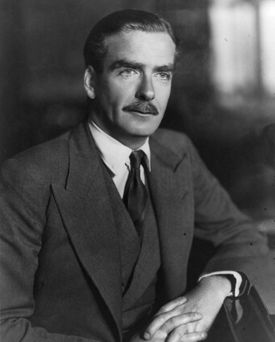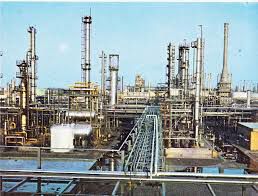SIR ANTHONY EDEN AND DELUSION OF GRANDEUR: IRANIAN OIL CRISIS EXPOSED BRITISH WEAKNESS: SUEZ WAS ONLY AN UNDERLINE THAT BRITAIN COULD NOT ACT MILITARILY WITHOUT AMERICAN CONCURRENCE.

Britain still saw the Middle East as important. She tried to maintain her relationship with the other Middle Eastern states, for example, through her connections with the ruling families. That is why Britain still could enjoy what, in retrospect, are delusions of grandeur in that she thought that her skilful diplomatic networking and her long established connections with Egypt and her relationship with Jordan in particular enabled her to exert influence in the Middle East. Britain had no reason to doubt her capacity to use military force in the Middle East if it should come to that. The Iranian crisis demonstrated that there were good reasons why she should not use it, but did not rule out the possibility of using it if it were politically and diplomatically feasible.
Despite the United Kingdom’ s economic weakness, and the need for cooperation with the United States for the containment of the Soviet Union, and protecting British interests in the Persian Gulf, as had been said, until 1956 the Middle East was still a British sphere of influence.
In 1956 the government of Egypt nationalised the Suez Canal. The Suez Canal was the main route between Britain and her Empire, mainly India. After India’ s independence it became the leading route by which two-thirds of the oil produced in the Persian Gulf was shipped, and thus the Suez Canal was strategically important to Britain, Western Europe, and the United States. Britain had dominated Egypt since the 1880s and the canal zone was still in the 1950s important to her military presence in the eastern Mediterranean.
Following the nationalisation of the Anglo-Iranian Oil Company, the United States acquired a significant share in the 1954 oil consortium, as was said in Chapter Five. During the Suez crisis, the British Prime Minister, Anthony Eden, did not want an American involvement in the dispute with Egypt, for the fear that it may lead to further United States influence in the Middle East, as was the case in the aftermath of the Anglo-Iranian Oil Company’ s crisis. In 1955 Eden had told the Cabinet:
Our interests in the Middle East were greater than those of the United States because of our dependence on Middle East oil, and our experience in the area was greater than theirs. We should not therefore allow ourselves to be restricted overmuch by reluctance to act without full American concurrence and support. We should finance our own policy in the light of our own interests in the area and get the Americans to support it to the extent we could induce them to do so. ¹
Though containment of the Soviet Union and protecting the oil reserves of the Persian Gulf from her reach was a basic American interest, however, in Sir Anthony Eden’s view the United States co-operation, during the Anglo-Iranian Oil Company’s crisis, meant for the United Kingdom to give the Americans a share in Iranian oil, or the new consortium of 1954. According to Eden:
-
-
- PRO, London, CAB 128/29 CM 34 (55) 8, 4th October 1955.
-



